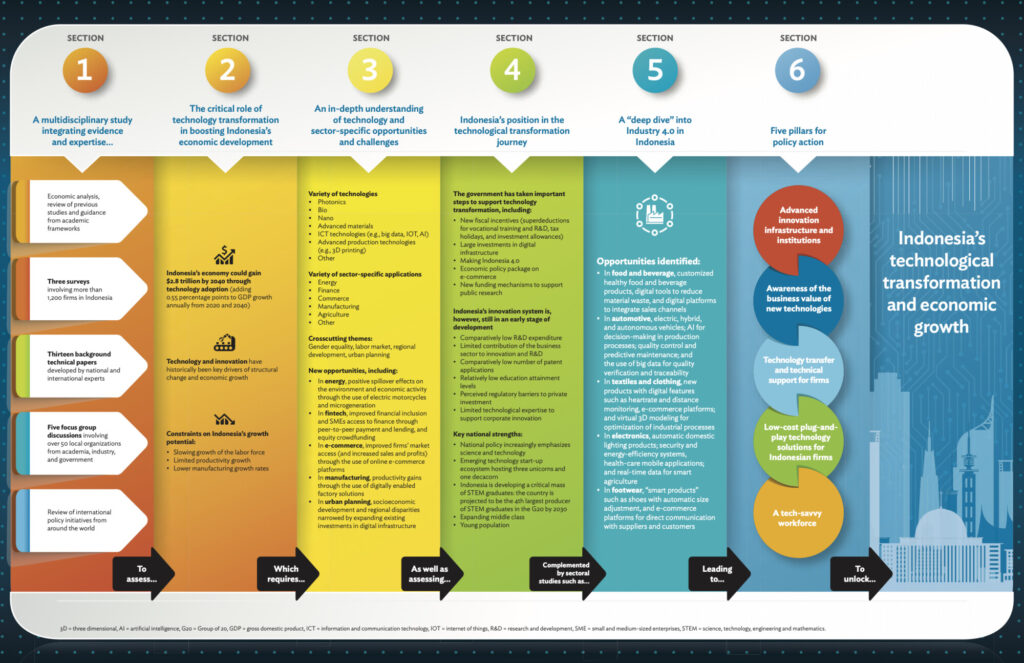News
Supporting technological transformation in Indonesia (2018-20)
Published on November 14th 2019
A project for the Asian Development Bank (ADB)
The project investigates the implications of emerging technologies in Indonesia’s economy. Led by Policy Links, this collaborative effort involved more than fifteen researchers from various Departments of the University of Cambridge. The project had two main outputs: (a) five Policy Briefs reviewing global trends and policy implications in selected sectors; and (b) a policy-oriented Flagship Report focused on policies to support technological transformation through innovation.
The challenge
There is a critical gap in knowledge on the country-specific impact on Indonesia of disruptive technologies, which in turn limits the development of enabling policies as well as a clear business case for public investments.
Indonesia is the largest economy in Southeast Asia and the 16th largest in the world. Its economic performance has been impressive over the last two decades and it is forecast to maintain consistent levels of growth in the coming years. Like all countries, however, it is worried about the potential impact of disruptive technologies such as artificial intelligence, machine learning, blockchain, big data, and the internet of things, among others, which are radically reshaping economic activities and sources of international competitiveness.
All countries recognise the opportunities and challenges presented by the advent of these new technologies, but there is no ‘one size fits all’ approach to tackling them. Each country is unique, with different economic structures, different resources and different areas of specialisation. While it is always instructive to look at how other countries are developing their innovation policies, each country needs an approach that will work in its own particular economic and social context.
The client need
The Asian Development Bank wanted to better understand what these emerging technologies will mean for Indonesia and what policies can support the country’s technological transformation.
Policy Links was asked to carry out a study, from both engineering and economics perspectives, of how new technologies are likely to affect key sectors in Indonesia’s economy, and identify policy options to contribute to the national debate.
The approach
In order to fully understand the implications of new technologies for Indonesia, the project had a number of different elements:
- A study of the Indonesian economy, carried out in conjunction with a local research institute.
- Deep analysis of key sectors that are both important to the economy and most likely to experience technological disruption.
- Wide-ranging consultation with local stakeholders to ensure that the team’s findings fully represent the realities of the Indonesian experience.
- A review of how other countries are approaching the same challenge.
- The publication of a final Flagship Report which pulls this analysis together and makes a set of policy recommendations for the Indonesian government.
The report
Read the report Innovate Indonesia: Unlocking growth through technological transformation
Read ‘”Innovate Indonesia” report presented to Minister of Research and Technology’

For further information please contact:
Michele Palladino
+44(0)1223 760503mp841@cam.ac.ukRelated projects
News | 6th February 2026
UK Manufacturing Dashboard: latest performance and global benchmarks
3rd February 2026
The Swiss paradox: a services reputation built on an industrial and innovation powerhouse
News | 21st January 2026
CIIP delivers bespoke training for delegation from the Government of Nigeria
Find out how we help connect world-leading researchers with international governments and policymakers




